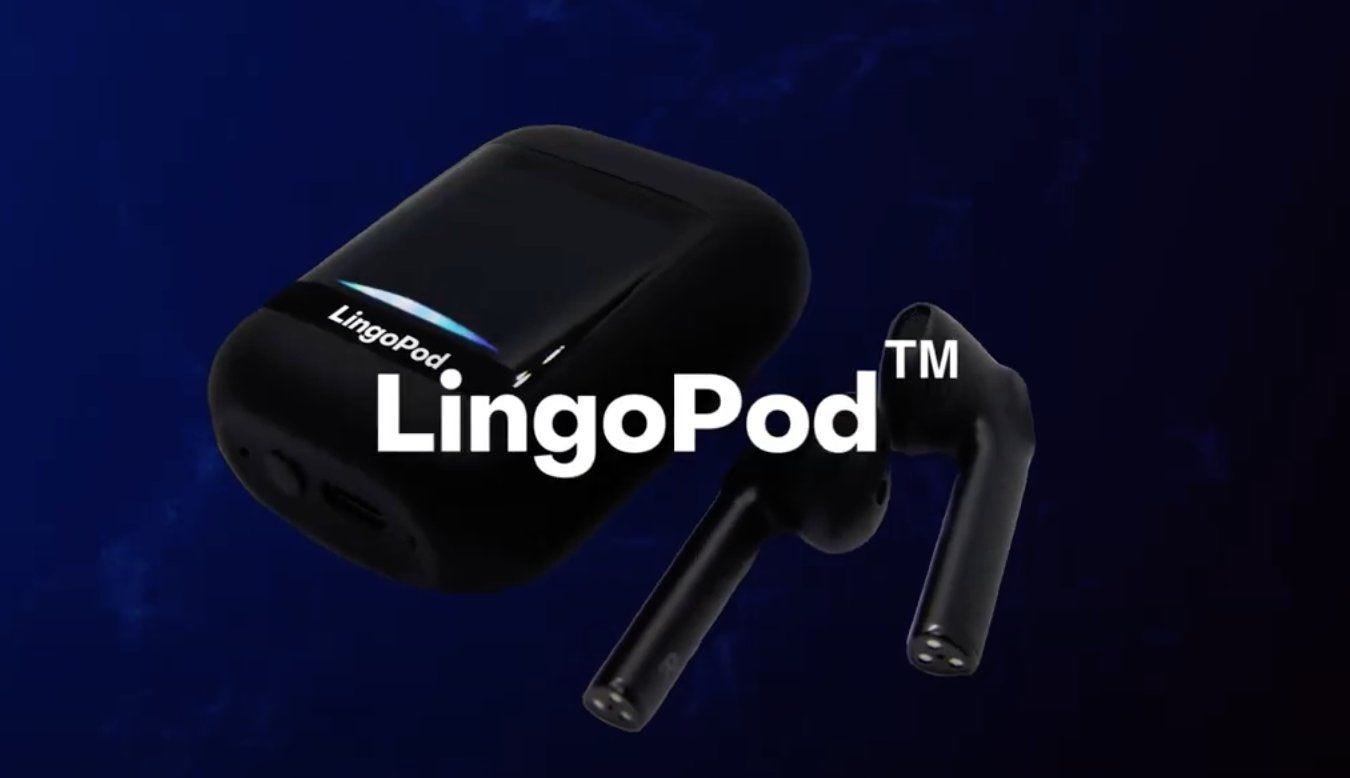
LingoAI defines the world’s first Web3.0 AI Agent, LingoPod, a practical cross-lingual translation tool, as well as a decentralized AI Agent that protects user data privacy, truly serving users and capable of corpus mining. LingoAI is the infrastructure project of AI democratization and sustainable development, AI x DePIN. The DePINs (Decentralized Physical Infrastructure Networks) industry incentivizes people to share real-time data from the physical world through token rewards based on physical devices and sensors, which can be used for various model training purposes. LingoPod, through token incentive mechanisms and while protecting personal privacy, can gather diverse speech corpus needed for large language model (LLM) training and fine-tuning, including endangered languages and languages without words. LingoPod hardware excels in several aspects:
Corpus Mining:
LingoPod is represented as a natural language processing interaction, smart earphone hardware that can connect to users’ phones via Bluetooth or WIFI to form a distributed AI network. Each user holding a LingoPod can constitute a node. Users can contribute their native language, including dialect, and translated contents in the form of speech or text to Review DAO nodes for review and validation. Upon validation, rewards are distributed via blockchain. Additionally, each node can receive a default task, and users can earn more income by completing more tasks. The low-resource language corpus built by LingoPod through AI and DePIN greatly improves the application effectiveness of LLMs. The incorporation of users’ native accents, dialects, and translated content into the corpus after proofreading not only helps enhance the richness and quality of low-resource language corpus but also provides broader possibilities for AI adaptation in professional domains, multi-languages, and multi-cultures.
Decentralized AI:
The widespread adoption of LingoPod will build a distributed model training network and decentralized computing power and data storage networks. Decentralization of data and models will be achieved through federated learning and distributed computing, managing and training data in a distributed data-parallel mode, and assisting LLM inference, fine-tuning, and training in a distributed model-parallel mode.
Hybrid Artificial Intelligence for Personal AI Agents:
As AI Agents evolve, they are meant to serve users rather than being manipulated by businesses. Therefore, when it comes to privacy data, enabling data and computation results to be used for training and inference of large models without leaving the device, combining locally running offline small parameter models with large models, constructs hybrid artificial intelligence, ensuring that AI Agents solely serve users themselves and do not become spies placed by businesses, while also ensuring the privacy and security of user data.
LingoPod is just the tip of the iceberg of LingoAI, LingoAI pioneered the fusion of Web3.0 and AI’s MetaGraph technology stack from the root. MetaGraph makes the AI LLM and the knowledge graph RAG to make the LLM generate more objective facts and knowledge which can ease the hallucinations. LingoAI achieves the separation of data and application at the Semantic Web level through SOLID and MetaLife protocols, creating a more personalized AI model in the process of LLM inference, while protecting the user’s data privacy. The value internet is realized by combining blockchain ledger technology and peer-to-peer telecommunications, which completely solves the bottleneck problem of data ownership and AI data scarcity. It could implement the vision of Web3.0, A Web of Data (from the founding father of the World Wide Web), and allows AI to be developed sustainably.
Under the emergence of the LLM, the exhaustion of private data and the shortage of computing power are the main problems, which are mainly reflected in:
1. Preventing Innovation:
Algorithms, computing power, and data are monopolized by giant companies, while the high cost of large model training brings excessive market domination and monopoly, which strangles potential innovations. The training of LLMs relies on public data which will soon be exhausted as the growth of the parameters of the large models, and thus continued growth of big models relies on private data. Large businesses still have a monopoly advantage over the data as the difficulty of utilizing the absolute volume of isolated data owned by small businesses.
2. Scarcity of Low Resource Languages and Specialized Domain Data:
Large Language Models are facing the shortage challenges of data in specialized domains, multiple languages, and multiple cultural adaptations. The lack of low-resource language corpus constrains the effective application of LLMs in developing countries and affects the globalization process of enterprises.
3. Data Privacy Concerns:
Existing closed-source models are over-centralized which brings the risk of personal data leakage and misuse.
If the free and heavenly amount of data on the internet is the common knowledge wealth of humankind, then the LLMs trained with these data should belong to all humankind. Building these vast knowledge graphs on the Web 3.0 semantic web with determinable autonomy and incentivizing human contributors is what LingoAI is aiming to do!
LingoAI coupled with the decentralized social network protocol MetaLife.Social and the funding father of the World Wide Web’s SOLID allows:
1. Everyone has one or several corresponding controlled edge nodes.
2. The majority of application scenarios are placed in the edge node processing computation and storage.
3. Collaboration among personal nodes and personal nodes is accomplished through the blockchain.
4. Communication between nodes and nodes is accomplished through P2P.
5. Individuals can completely control their nodes or authorize a trusted party to manage nodes (pod or pub); to achieve the maximum extent of decentralization.
6. Constitute the world’s largest decentralized data exchange market through MetaGraph!
The success formula: When storing personal data controlled by individual nodes and loading LLMs, an AI Agent can be trained to personalize its responses while ensuring 100% privacy protection.
LingoPod, in collaboration with MetaLife.social and SOLID, has already achieved the first Web3.0 AI Agent. This AI Agent has individual intelligence and can form social intelligence through the DePIN network.
